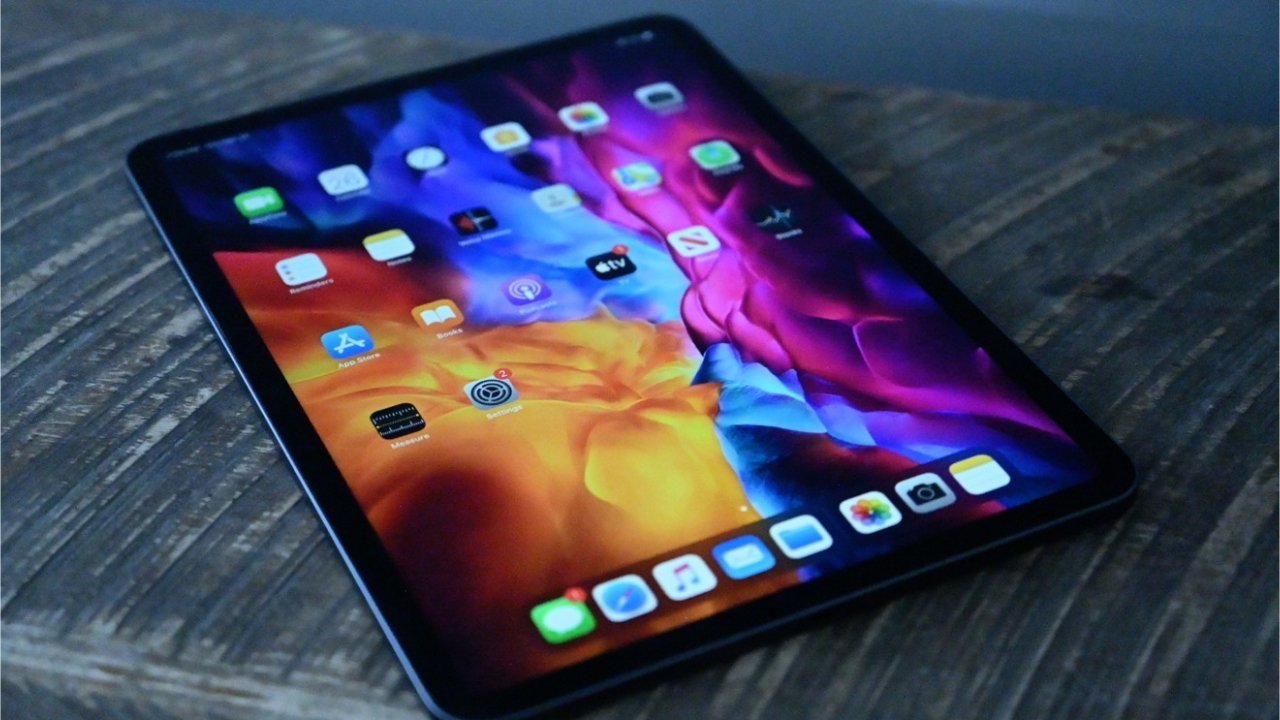Apple will be bringing out a new OLED iPad in 2024, analysts claim, with the iPad Pro expected to be the first Apple tablet to use the display technology.
An OLED iPad has surfaced in multiple rumors in the past, with a higher-quality display expected to arrive on the tablet line at some point. In a Monday report, it is claimed that a 2024 release could happen.
In a report discussing a 36% year-on-year decline in Apple's iPad panel purchasing volume, Omdia also offers its forecast for future iPad models. In the note seen by AppleInsider, the OLED iPad is on the way in 2024.
According to the report, the OLED tablet will be 11 inches and 12.9 inches in size, matching the existing iPad Pro display sizes. The screens will be supplied by LG Display and Samsung Display, two major screen partners in Apple's supply chain.
A recent supply chain survey advises there could be 10 million OLED iPad panels ordered by Apple in 2024. LG Display would handle 6 million units of both display sizes, while Samsung Display could make 4 million 11-inch versions.
The iPad Pro range isn't the only area where Apple is interested in making display changes. OLED iPad panels may also be adopted by the iPad mini and iPad Air from 2026 onward.
Omdia claims follow after a rumor from September 4 that Apple will revamp the iPad Pro lineup in early 2024 with an OLED display and a new 4TB capacity option. One day later, a DigiTimes report echoed the early 2024 claim.
Back in July, the narrative of a 2024 OLED iPad Pro release was still seemingly possible, with the displays using an LTPO TFT and hybrid OLED design.
The report also covered forecasts on purchasing, with Apple's iPad panel volume orders estimated to drop 36% year-on-year in 2023 to 45.4 million units, which would make it the lowest yearly shipment since 2020.
Demand for the current iPad Pro models in 2023 is expected to endure a "big decline" compared to previous years, with the blame leveled on the fact that high-priced and high-end hardware is harder to sell during a global economic recession.
 Malcolm Owen
Malcolm Owen










 Amber Neely
Amber Neely
 Christine McKee
Christine McKee


 William Gallagher
William Gallagher
 Chip Loder
Chip Loder

-m.jpg)






There are no Comments Here, Yet
Be "First!" to Reply on Our Forums ->